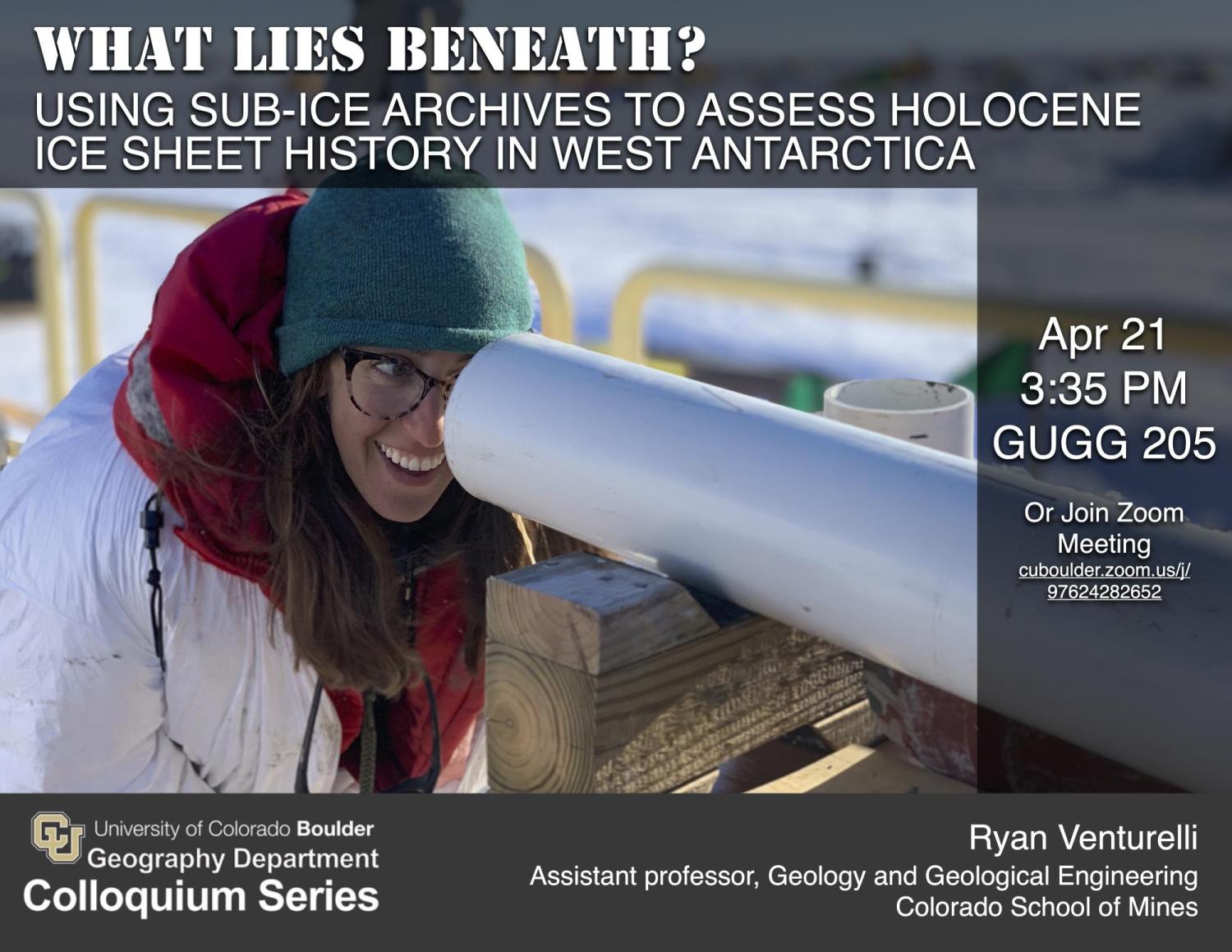What lies beneath? Using sub-ice archives to assess Holocene ice sheet history in West Antarctica
Ryan Venturelli
Assistant professor
Geology and Geological Engineering
Colorado School of Mines
In Person:
GUGG 205
Apr 21, 2023, 3:35 PM - 5:00 PM
Or Join Zoom Meeting:
Zoom login required (free account available at zoom.us)
Abstract
Geological observations of past ice sheet behavior enable us to refine physical models that predict how much, how fast, and from where Antarctic ice mass loss will contribute to future sea level rise. Geological constraints on paleo ice thickness obtained from above the modern ice surface (e.g., exposure age data from deglaciated nunataks) and on paleo ice extent obtained outboard from modern margins (e.g., sediment core and geomorphic data from the ice-free continental shelf) have served as the primary tools to decipher the topology of the Antarctic Ice Sheet from the Last Glacial Maximum to present. Recent efforts to recover sediment and bedrock from beneath grounded ice in Antarctica offer insight into the southernmost extent of grounding line retreat, yielding a more complete view of ice dynamics through the last deglaciation. In this talk, I will present results from three subglacial access efforts that have provided the first direct constraints on a less extensive West Antarctic Ice Sheet in the Holocene compared to today. These new constraints on the timing and extent of grounding line retreat prior to the modern observational record allow for a mechanistic understanding of the drivers of marine ice-sheet evolution, subglacial ecosystem processes, and subglacial Antarctica’s role in global biogeochemical cycling. I will conclude by presenting new geochemical and sampling tools under development to enable future work constraining ice-sheet history. By generating this process-to-paleo perspective on the co-evolution of cryospheric, geologic, biologic, and oceanographic systems and combining it with detailed ice-sheet modeling experiments, we can create the context required to reduce uncertainty in sea-level projections on societally relevant timescales.
Bio
Ryan Venturelli is an assistant professor in Geology and Geological Engineering at Colorado School of Mines. She uses isotopic tools to connect the timing and rates of past cryospheric change with the modern observational record to gain a process-based understanding of ice mass loss.
Educational history:
PhD: 2021 from University of South Florida
MS: 2015 from Indiana State University
BS: 2013 from Indiana University Northwest
Watch the Presentation:
[video:https://vimeo.com/824233858]


